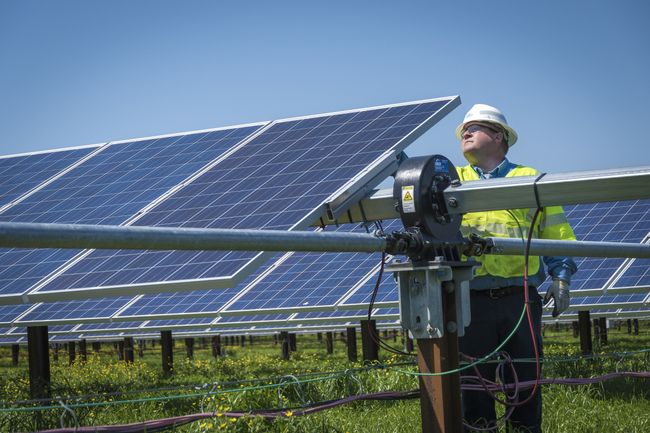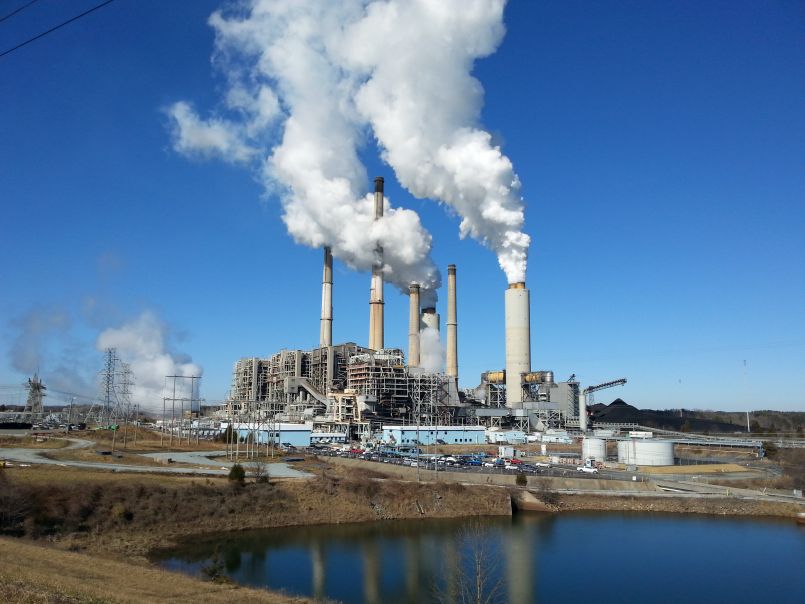About one month ago, the North Carolina Utilities Commission passed a plan in response to the state’s Clean Energy Bill. Named the Carbon Plan, the new legislation requires public utility companies to change how they use fossil fuels. Companies like Duke Energy, which controls most of the electricity in North Carolinian homes and businesses.
In the plan are two major requirements for Duke Energy: cut carbon emissions 70 percent by 2030 and become carbon neutral by 2050. Bill Norton, a spokesperson for Duke Energy, said how the company goes about meeting these requirements will depend on its customers.
“Yes, we want to get to these emissions reduction targets but it has to be in the least cost manner and it has to be at equal or greater reliability for customers,” he said.
Part of keeping up with these two ideals is a continued reliance on natural gas.
“The commission basically agreed with us that natural gas has a role to play in the energy transition,” Norton said.
Duke Energy plans to get rid of all its coal plants by 2035 as it incorporates more renewable sources of energy. But environmentalists argue that this toe-dipping approach into clean energy is unnecessary.
“The gas is driving climate change and there is plenty of it on the system already,” said Sally Robertson, a coordinator for a climate change nonprofit called NC WARN. “We don’t need to build new infrastructure to increase our gas use, we need to put all of our efforts into clean energy.”
Last year, NC WARN and other clean energy organizations graded Duke Energy’s internal carbon plan. Duke Energy failed in nearly every category. Robertson said the company should instead implement a more ambitious plan for clean energy.
“Maximize renewable energy: as much solar, wind and energy storage as you can do, as much energy efficiency, so energy saving measures,” she said. “Stop with the fossil fuels already.”
According to Norton, the company has to rely on natural gas to keep costs low and power available to customers.
“There is no way that we can go to just renewables,” he said. “It’s not feasible for a growing state like North Carolina.”
But back in July, an environmental consultant agency said differently.
Before the Carbon Plan was released, climate change advocacy groups hired Synapse Energy Economics to find sustainable means to reduce carbon emissions. The report proposed increasing reliance on solar power and battery storage along with importing wind power — all with very little reliance on natural gas. The consultants also found that these changes would save customers anywhere from $700 million to $2.4 billion.
Norton, however, said Duke Energy maintains these changes can’t be rushed.
“It’s got to be an orderly transition,” he said. “We need new generation in place before the old coal units are retired.”
One of these new power generations is a solar power expansion — both for solar panels and battery storage that generates electricity when the sun isn’t out.

Duke Energy plans to increase its solar power and battery storage to meet requirements in state Carbon Plan. (Photo via Duke Energy.)
“We’re already number four in the nation for solar and we’re talking about developing three times the level of solar that we’ve got now,” Norton said.
The company is also looking into other new generation technologies like hydrogen and nuclear power.
“A lot of folks don’t know this, but 50% of our power in North Carolina comes from nuclear plants, it’s already carbon-free,” Norton said. “So, you can’t put all your eggs in one basket. You need a diverse approach to make sure that reliability stays front and center.”
Duke Energy has until September to submit a formal proposal for how it will meet the Carbon Plan’s requirements.
Top photo via D.W. Evans Electric Inc.
Chapelboro.com does not charge subscription fees, and you can directly support our efforts in local journalism here. Want more of what you see on Chapelboro? Let us bring free local news and community information to you by signing up for our biweekly newsletter.










